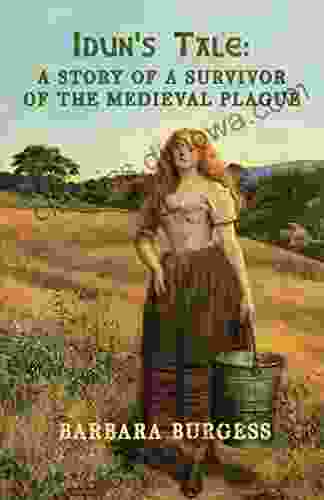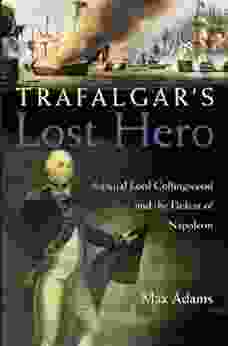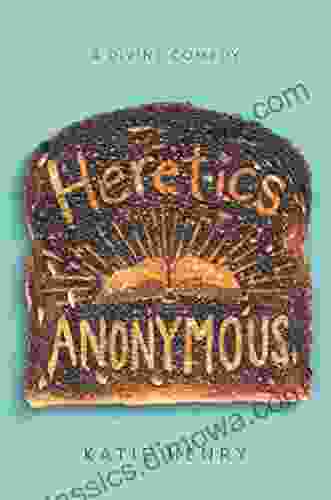The Plague: A Survivor's Tale

4.1 out of 5
| Language | : | English |
| File size | : | 3534 KB |
| Text-to-Speech | : | Enabled |
| Enhanced typesetting | : | Enabled |
| Word Wise | : | Enabled |
| Print length | : | 106 pages |
| Lending | : | Enabled |
| Screen Reader | : | Supported |
In 1347, the Black Death swept across Europe, killing an estimated 25 million people. One of the few survivors was a young woman named Agnes. Her story is a harrowing account of the horrors of the plague and a testament to the resilience of the human spirit.
Agnes was born in a small village in northern France. In the summer of 1347, the plague arrived in her village, and within weeks, half of the population was dead. Agnes's parents were among the victims, and she was left alone to fend for herself.
Agnes wandered the countryside for weeks, begging for food and shelter. She was often turned away, as people were afraid of catching the plague from her. Eventually, she stumbled upon a group of traveling merchants who took pity on her and allowed her to join their caravan.
The merchants traveled for months, and Agnes slowly began to recover from the plague. She learned to care for herself and to trust others again. By the time the caravan reached its destination, Agnes was a changed person. She had lost her family and her home, but she had also found a new strength and a new purpose in life.
Agnes's story is a reminder of the horrors of the Black Death, but it is also a story of hope and resilience. Agnes survived the plague, and she went on to live a long and fulfilling life. Her story is a testament to the human spirit and to the power of hope.
The Black Death
The Black Death was the most devastating pandemic in human history. It is estimated that the plague killed between 30 and 60% of the population of Europe. The plague was caused by the bacterium Yersinia pestis, which is carried by fleas that live on rats. When a rat dies from the plague, the fleas that were living on the rat will become infected and will then transmit the plague to humans.
The symptoms of the plague can vary, but they typically include fever, chills, headache, and vomiting. In some cases, the plague can also cause buboes, which are swollen lymph nodes. The plague is a very serious illness, and it can be fatal if it is not treated promptly.
There is no cure for the plague, but there are treatments that can help to relieve the symptoms and prevent the infection from spreading. Antibiotics are the most common treatment for the plague, and they can be very effective if they are started early in the course of the illness.
Agnes's Story
Agnes's story is one of the few firsthand accounts of the Black Death that we have. Her story was recorded by a monk who lived in the same village as Agnes. The monk's account is a vivid and harrowing description of the horrors of the plague.
Agnes's story begins in the summer of 1347, when the plague arrived in her village. Within weeks, half of the population was dead. Agnes's parents were among the victims, and she was left alone to fend for herself.
Agnes wandered the countryside for weeks, begging for food and shelter. She was often turned away, as people were afraid of catching the plague from her. Eventually, she stumbled upon a group of traveling merchants who took pity on her and allowed her to join their caravan.
The merchants traveled for months, and Agnes slowly began to recover from the plague. She learned to care for herself and to trust others again. By the time the caravan reached its destination, Agnes was a changed person. She had lost her family and her home, but she had also found a new strength and a new purpose in life.
Agnes's story is a reminder of the horrors of the Black Death, but it is also a story of hope and resilience. Agnes survived the plague, and she went on to live a long and fulfilling life. Her story is a testament to the human spirit and to the power of hope.
The Legacy of the Black Death
The Black Death had a profound impact on European society. The plague killed millions of people, and it caused widespread economic and social disruption. The plague also led to a decline in the power of the Church, as people began to question the authority of a God who would allow such a devastating pandemic to occur.
The Black Death also had a lasting impact on the way that people thought about death and the afterlife. The plague showed people that death could come suddenly and without warning, and it forced people to confront their own mortality. The plague also led to a new emphasis on the importance of living a good life, as people realized that they might not have another chance.
The Black Death was a devastating pandemic, but it also had a profound impact on European society. The plague led to a decline in the power of the Church, a new emphasis on the importance of living a good life, and a new way of thinking about death and the afterlife.
4.1 out of 5
| Language | : | English |
| File size | : | 3534 KB |
| Text-to-Speech | : | Enabled |
| Enhanced typesetting | : | Enabled |
| Word Wise | : | Enabled |
| Print length | : | 106 pages |
| Lending | : | Enabled |
| Screen Reader | : | Supported |
Do you want to contribute by writing guest posts on this blog?
Please contact us and send us a resume of previous articles that you have written.
 Book
Book Novel
Novel Page
Page Chapter
Chapter Text
Text Story
Story Genre
Genre Reader
Reader Library
Library Paperback
Paperback E-book
E-book Magazine
Magazine Newspaper
Newspaper Paragraph
Paragraph Sentence
Sentence Bookmark
Bookmark Shelf
Shelf Glossary
Glossary Bibliography
Bibliography Foreword
Foreword Preface
Preface Synopsis
Synopsis Annotation
Annotation Footnote
Footnote Manuscript
Manuscript Scroll
Scroll Codex
Codex Tome
Tome Bestseller
Bestseller Classics
Classics Library card
Library card Narrative
Narrative Biography
Biography Autobiography
Autobiography Memoir
Memoir Reference
Reference Encyclopedia
Encyclopedia Asgeir Sigfusson
Asgeir Sigfusson Selraybob
Selraybob Barbara Sillery
Barbara Sillery Austin E Quigley
Austin E Quigley Islam Choudhury
Islam Choudhury George Selden
George Selden Tere Kampe
Tere Kampe Pete May
Pete May Barb Geiger
Barb Geiger Zack Emerson
Zack Emerson Azade Seyhan
Azade Seyhan Katie Henry
Katie Henry Axel K Kloth
Axel K Kloth Tabihe Akashi
Tabihe Akashi Beth Mccord Kobett
Beth Mccord Kobett Gunnar Hansen
Gunnar Hansen Claudia Cangilla Mcadam
Claudia Cangilla Mcadam Michael Belanger
Michael Belanger Barbara E Joe
Barbara E Joe Von Taylor
Von Taylor
Light bulbAdvertise smarter! Our strategic ad space ensures maximum exposure. Reserve your spot today!

 Corbin PowellSimple Machines for Kids: Unleashing the Power of Energy, Force, and Motion!
Corbin PowellSimple Machines for Kids: Unleashing the Power of Energy, Force, and Motion!
 Rubén DaríoThis Is Our Story: An Unforgettable Journey of Love, Loss, and Redemption by...
Rubén DaríoThis Is Our Story: An Unforgettable Journey of Love, Loss, and Redemption by... DeShawn PowellFollow ·2k
DeShawn PowellFollow ·2k Beau CarterFollow ·4.8k
Beau CarterFollow ·4.8k Dominic SimmonsFollow ·7k
Dominic SimmonsFollow ·7k Edward ReedFollow ·14.8k
Edward ReedFollow ·14.8k Cade SimmonsFollow ·4.7k
Cade SimmonsFollow ·4.7k Terry BellFollow ·8k
Terry BellFollow ·8k Liam WardFollow ·6k
Liam WardFollow ·6k Dwayne MitchellFollow ·15.7k
Dwayne MitchellFollow ·15.7k

 Marcus Bell
Marcus BellHigh Lonesome: A Literary Journey into the Heart of the...
<p>Hannah weaves a intricate...

 Gabriel Hayes
Gabriel HayesRediscover Gideon Green's Timeless Adventures in "Gideon...
Embark on an Extraordinary Journey with...

 Samuel Taylor Coleridge
Samuel Taylor ColeridgeEscape to a Literary Haven: Discover the Enchanting World...
Embark on an Extraordinary Literary...
4.1 out of 5
| Language | : | English |
| File size | : | 3534 KB |
| Text-to-Speech | : | Enabled |
| Enhanced typesetting | : | Enabled |
| Word Wise | : | Enabled |
| Print length | : | 106 pages |
| Lending | : | Enabled |
| Screen Reader | : | Supported |













